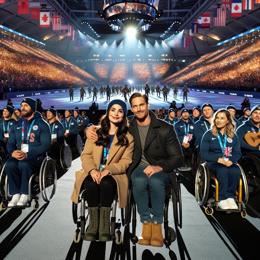Image created by AI
China Demands Independent Investigation into USADA Amid Doping Allegations Cover-up Claims
In what is quickly escalating into an international dispute over sports ethics, China's Anti-Doping Agency (CHINADA) has made a bold move by demanding an independent investigation into the practices of the United States Anti-Doping Agency (USADA). The request from CHINADA came on Thursday, in response to an investigative report that surfaced, highlighting a contentious approach by the USADA that involved permitted athletes who had ostensibly committed doping violations to continue competing, in exchange for their cooperation in providing information on other offenders.
According to the detailed exposé published, the USADA's method is in sharp conflict with the World Anti-Doping Code and has stirred controversy for potentially jeopardizing the integrity of sports competitions. The World Anti-Doping Agency (WADA) has expressed concerns, emphasizing that such leniency from the US side contradicts the established global anti-doping standards.
CHINADA voiced a stern critique of USADA's procedures, condemning them for damaging the principle of fair competition and violating the rights of dedicated clean athletes. The Chinese anti-doping body denounced what it perceives as a lack of transparency in USADA's operations and accused the US of harboring "double standards." This proclamation from CHINADA directly alludes to instances of American athletes, who despite testing positive for prohibited substances, notably Erriyon Knighton, were given the green light to participate in high-profile competitions, like the Olympic 200m final in Paris.
This isn't the first instance of doping disputes casting a shadow over international sporting events. Earlier revelations involving Chinese swimmers who tested positive yet competed in the Tokyo Olympics resulted in a media spat, with China defending its athletes against contaminated food claims and condemning WADA for alleged preferential treatment.
As accusations and defenses intensify, this whirlwind of doping disputes inevitably affects the reputation of sports globally. With the US currently leading the Olympic medal tally, closely followed by China, the undercurrents of these allegations have the potential to taint the perceived legitimacy of their achievements.
In a sporting world where the quest for gold is often overshadowed by integrity challenges, these developments underscore the importance of rigorous, unbiased, and consistent enforcement of anti-doping regulations. CHINADA's call for greater scrutiny and additional testing of American track and field athletes implies systemic issues within US athletics and places pressure on USADA to adhere to international procedures and standards.
This story highlights the intertwined nature of sports and geopolitics, where suspicion and rivalry extend beyond the playing fields and into the sphere of international regulations and compliance.










